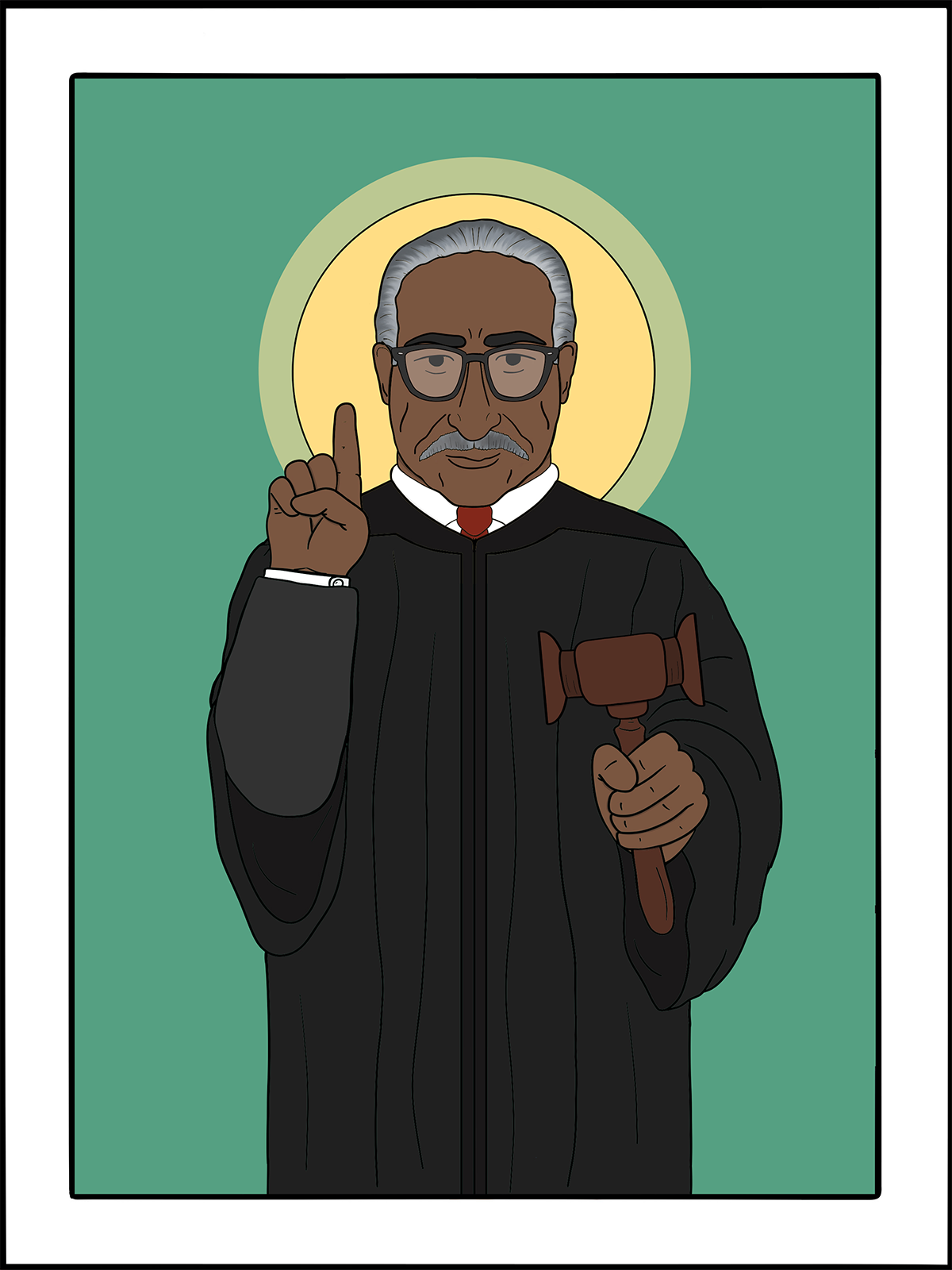
May 17
Thurgood Marshall
Public Servant, 1993
art by Rev. Kirsten Kohr of Geneva, Ohio Eternal and ever-gracious God, who blessed your servant Thurgood Marshall with grace and courage to discern and speak the truth: Grant that, following his example, we may know you and recognize that we are all your children, brothers and sisters of Jesus Christ, who lives and reigns with you and the Holy Spirit, one God, for ever and ever. Amen.
Thurgood Marshall was a distinguished American jurist and the first African American to become an Associate Justice of the United States Supreme Court.
Marshall was born on July 2, 1908, in Baltimore, Maryland. He attended Frederick Douglass High School in Baltimore and Lincoln University in Pennsylvania. Although he was pushed toward other professions, Marshall was determined to be an attorney. He was denied admission to the University of Maryland Law School due to its segregationist admissions policy. He enrolled and graduated magna cum laude from the Law School of Howard University in Washington.
Marshall began the practice of law in Baltimore in 1933 and began representing the local chapter of the NAACP in 1934, eventually becoming the legal counsel for the national organization, working in New York City. He won his first major civil rights decision in 1936, Murray v. Pearson, which forced the University of Maryland to open its doors to Black people.
At the age of 32, Marshall successfully argued his first case before the United States Supreme Court and went on to win 29 of the 32 cases he argued before the court. As a lawyer, his crowning achievement was arguing successfully for the plaintiffs in Brown v. Board of Education of Topeka, in 1954. The Supreme Court ruled that the “separate but equal” doctrine was unconstitutional and ordered the desegregation of public schools across the nation.
President Lyndon Johnson appointed Marshall as the ninety-sixth Associate Justice of the United States Supreme Court in 1967, a position he held for 24 years. Marshall compiled a long and impressive record of decisions on civil rights, not only for African Americans, but also for women, Native Americans, and the incarcerated; he was a strong advocate for individual freedoms and human rights. He adamantly believed that capital punishment was unconstitutional and should be abolished.
As a child, Marshall attended St. Katherine’s Church, one of Baltimore’s historic African American parishes. While living in New York, he was the senior warden of St. Phillip’s Church in Harlem and served as a deputy to General Convention in 1964. During his years in Washington, Marshall and his family were members of St. Augustine’s Episcopal Church, where he was affectionately known as “the Judge.” He is remembered as “a wise and godly man who knew his place and role in history and obeyed God’s call to follow justice wherever it led.” Thurgood Marshall died on January 24, 1993.
Excerpted directly from “Lesser Feasts and Fasts 2022,” p. 232-233.

